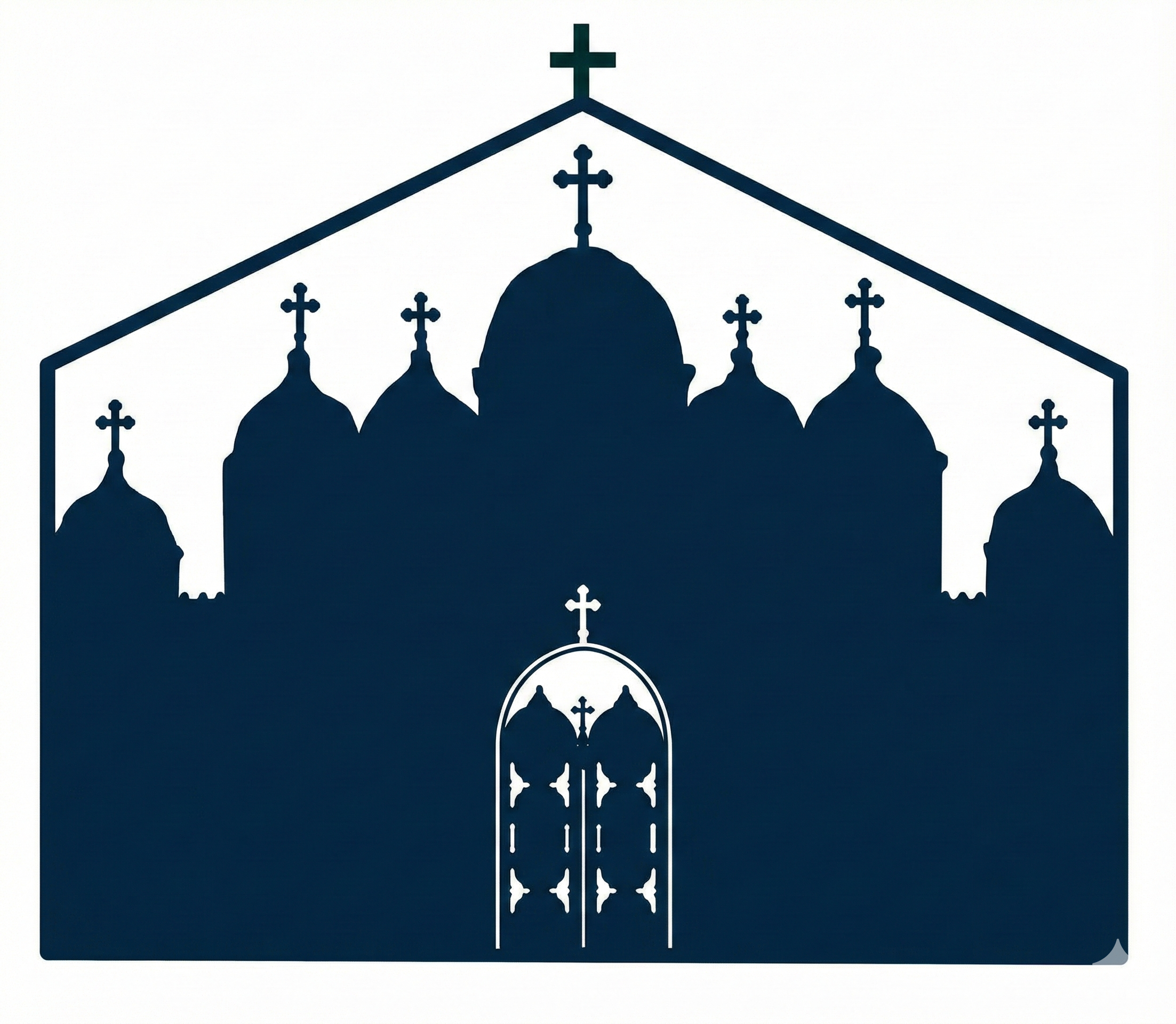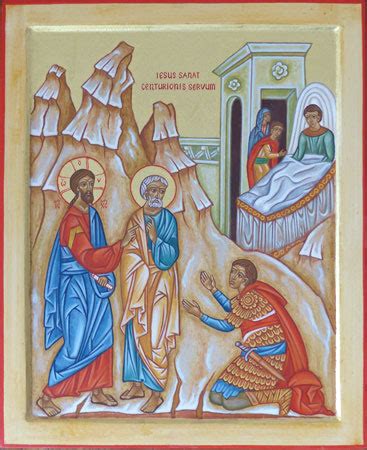Matthew 8:5-13, July 6, 2025, Osaka Church,
In the Name of the Father, and the Son, and the Holy Spirit,
A Roman centurion (an officer commanding one hundred soldiers) came to Jesus, seeking healing for his servant who was suffering from paralysis. When the Lord rose to go with him and heal the servant, the centurion stopped Him and said, “Lord, I am not worthy to have You come under my roof. But just say the word, and my servant will be healed.” Hearing this, the Lord praised his faith and said, “Go; let it be done for you as you have believed.” And at that very moment, the servant was healed. It is often preached that the centurion’s humility—his awareness of his own unworthiness—drew forth the Lord’s blessing. However, if we interpret this event merely as a moral lesson—“If you want God’s blessing, imitate the centurion and acquire the virtue of humility”—then we miss the larger Gospel, the joyful news, that this story conveys. If the centurion had thought of humility as a qualification to receive God’s blessing, then how could he have believed that he met that qualification? Would it not have been something like: “Because I possess the humility to know I am unworthy, that makes me worthy”? Would the Lord bless such a paradoxical and, in a way, self-deceiving misunderstanding?
The following words of the Holy Apostle Paul are at the root of the Gospel.
“There is no one righteous, not even one.”
As long as we are concerned about qualifications, we cannot receive Christ’s salvation. The reason why the centurion said, “I cannot welcome you into my home” was not a petty mindset that first considered whether he was qualified or not, but nothing other than a fear and trembling in front of the Holy One, the Creator who can command all things in heaven and earth as he pleases, the Son of God.
What makes today’s Gospel truly Good News is this: God, the One who created the world, crossed the infinite chasm between Creator and creature, became human, and came to us, standing before people. (Even now… here.)
Still, the centurion also made a movement—he stepped forward from his garrison, however short the distance, and stood before the Lord.
Just before receiving the Eucharist in the Divine Liturgy, the priest calls out, “The Holy things are for the holy.” The congregation responds, “One is Holy, One is the Lord, Jesus Christ, to the glory of God the Father. Amen.” This is a declaration that we are not worthy to receive something holy, that is, the Eucharist of the Son of God, who is the only Holy One. So should we withdraw from the Eucharist? No, on the contrary.
When the doors of the Holy of Holies open, the precious Body and Blood of Christ are presented with the words, “With the fear of God, faith, and love, draw near!” And we step forward before the Lord. We respond to His invitation, from the One who crossed the infinite distance between God and man to be with us. The issue is not about worthiness. It is about faith, hope, and love in Christ—the Son of God—with whom we long to be united.

